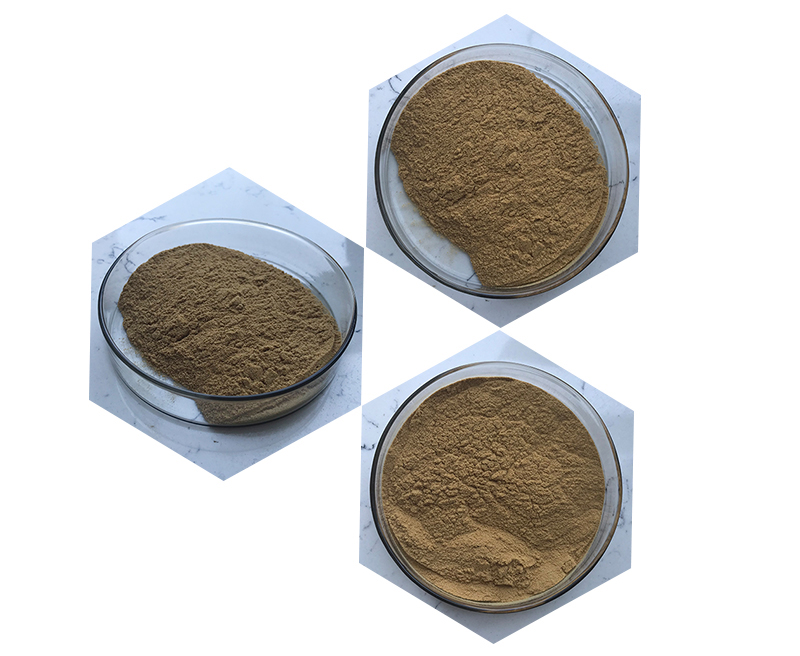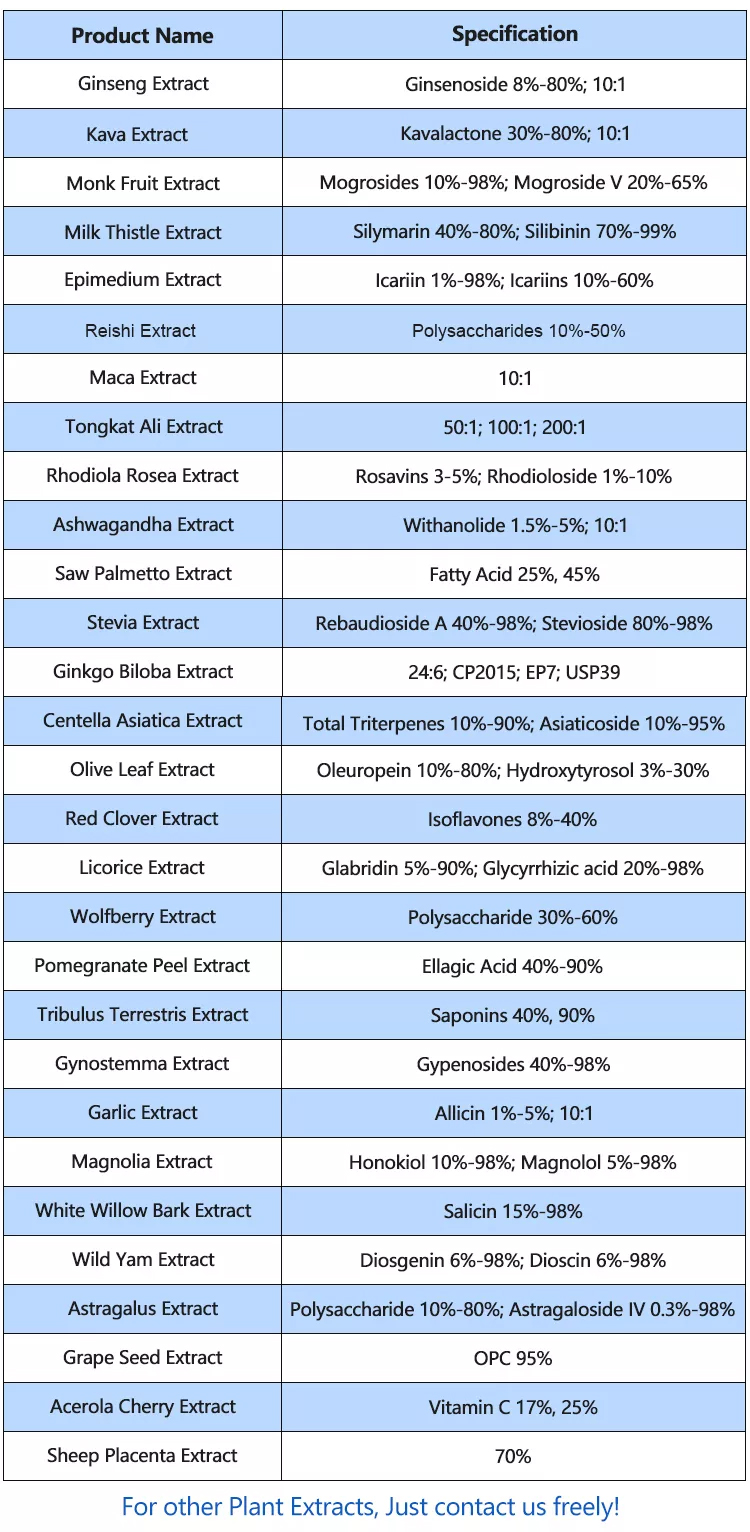Ginseng extract, derived from the root of the Panax genus (e.g., Panax ginseng or Panax quinquefolius), is a popular herbal supplement with a range of purported health benefits. Here’s a detailed overview of its effectiveness, side effects, and special precautions:
Effectiveness of Ginseng Extract
Ginseng extract is derived from the root of the ginseng plant (commonly Panax ginseng or Panax quinquefolius). It has been widely studied for its potential health benefits, including:
1.Energy and Fatigue:
- Ginseng is often used to combat fatigue and improve energy levels. Studies suggest it may enhance physical and mental performance, particularly in individuals experiencing chronic fatigue.
2.Cognitive Function:
- Ginseng may improve focus, memory, and cognitive performance, especially in aging populations.

3.Immune Support:
- It is believed to boost the immune system, potentially enhancing the body’s ability to fight infections like colds and flu.
4.Blood Sugar Control:
- Ginseng may help lower blood sugar levels in people with type 2 diabetes, although results vary.
5.Stress and Anxiety:
- Some evidence suggests ginseng may have adaptogenic properties, helping the body manage stress more effectively.
6.Sexual Health:
- It has been traditionally used to improve sexual function and libido, with some studies supporting its role in addressing erectile dysfunction.
Side Effects of Ginseng Extract
While generally considered safe when used in recommended doses, ginseng may cause side effects in some individuals, such as:
1.Mild Side Effects:
- Headache
- Nausea
- Diarrhea
- Insomnia
- Restlessness
2.Potential Severe Effects (Rare):
- Allergic reactions (rash, itching, swelling)
- Rapid heartbeat or high blood pressure
- Hormonal effects (e.g., changes in menstrual cycles in women)
3.“Ginseng Abuse Syndrome”:
- Overuse may lead to a combination of side effects including high blood pressure, nervousness, and dizziness.

Special Precautions of Ginseng Extract
1.Pregnancy and Breastfeeding:
- The safety of ginseng during pregnancy and breastfeeding is not well-established. It’s best avoided unless directed by a healthcare provider.
2.Chronic Health Conditions:
- People with conditions such as diabetes, high blood pressure, or heart problems should use ginseng with caution, as it may affect blood sugar and blood pressure levels.
3.Medication Interactions:
Ginseng may interact with certain medications, including:
- Anticoagulants (e.g., warfarin) – increasing the risk of bleeding.
- Stimulants – potentially enhancing nervousness or insomnia.
- Antidiabetic medications – potentially causing hypoglycemia.
4.Surgery:
- Ginseng may increase bleeding risk, so it’s recommended to stop use at least two weeks before surgery.
5.Allergic Reactions:
- Those with plant allergies should proceed cautiously.

Dosage Recommendations
The recommended dosage depends on the form of ginseng (capsules, teas, or liquid extract) and the condition being treated. Standard doses range from 200 mg to 400 mg daily of ginseng extract. Always follow package instructions or consult a healthcare provider.
Would you like to explore studies or specific brands of ginseng supplements?
